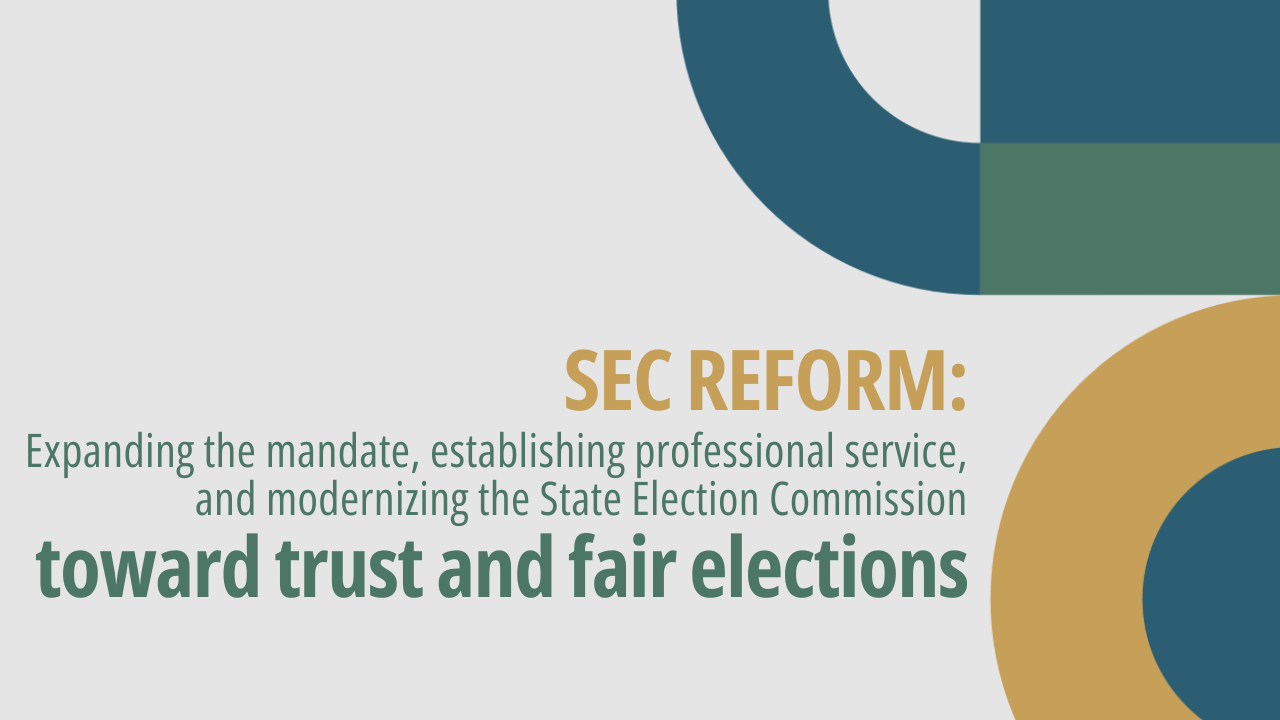Imprecisely arranged legal framework, underdeveloped professional service, and insufficient guarantees of financial independence and transparency hamper the growth and development of the State Election Commission, which directly impedes the development of democratic processes in the country.
These deficiencies are also the result of a lack of political will to have a strong “electoral authority” that is independent of political influences and rests on the strict application of laws and international standards.
Ambiguities in legislation not only pose formal obstacles but also contribute to reduced efficiency and diminished trust in the electoral system. Without an adequate legal foundation, achieving targeted reforms or ensuring the integrity of the election administration, which is crucial for fair and transparent electoral processes, becomes challenging.
Citizens demand integrity and reliability in the electoral process regardless of political affiliation. Achieving such integrity requires a thorough professionalization and depoliticization of the election administration, alongside legal reforms that will ensure the development of professional and technical capacities. These elements are essential not only for guaranteeing credible elections but also for continuously improving electoral procedures to meet the present-day needs and standards of the democratic process.
These are the main conclusions of the analysis titled “SEC Reform: Expanding the mandate, establishing professional service, and modernizing the State Election Commission (SEC) toward trust and fair elections,” prepared by the Center for Democratic Transition (CDT) and submitted to the Comprehensive Electoral Reform Committee with the aim of contributing to a more quality debate and finding the best models and solutions to instill trust in the electoral process.
In our initial publication (“Reform of the State Electoral Commission: Depoliticisation and Professionalisation as a Path to Integrity”), which deals with the reform of the State Electoral Commission, we outlined the most significant issues and deficiencies in the functioning and work of this institution that existed in previous electoral cycles and had a negative influence on its work. We also provided suggestions for addressing these issues, charting a course for its future reform.
In our subsequent publication, released today, we addressed the problems of the underdeveloped professional service, imprecisely defined competencies hindering development, and insufficient financial independence and transparency. We propose solutions that must be enacted through legislative intervention to lay the groundwork for further improvement.
Therefore, to better understand all the problems in the Commission’s work and functioning, we encourage readers to analyze both documents to gain a comprehensive insight into the need for reform and the proposed solutions. Failure to implement our recommendations in their entirety would leave the reform process incomplete, leading to discussions on the need for additional reform measures in the very near future.
This publication was produced within the framework of the project “Contribution to the EU Integration Process,” implemented by the Center for Democratic Transition (CDT) in cooperation with the Association for Responsible and Sustainable Development (UZOR). This project is financed with the contribution of the Ministry of Foreign Affairs and International Cooperation of the Republic of Italy. The content of this document represents the views of its authors and does not represent the position of the Ministry of Foreign Affairs and International Cooperation of Italy.
The complete analysis in Montenegrin is available here.
We welcome public dialogue on the content of our publications and appreciate all well-intentioned suggestions and criticisms.



